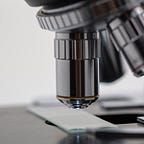Lab Notes: August 2022 Newsletter
Welcome to Lab Notes, the monthly newsletter from your friendly Element Scientific Communications team! We’ve always got our noses to the ground sniffing out science news, and we’re excited to share the most interesting and influential developments with you. We are continuing our now long-standing policy of sharing stories unrelated, or at most tangentially related, to COVID-19, as we assume that everyone’s appetite for pandemic coverage has been well satisfied elsewhere.
This Little Piggy was Resurrected
Researchers have blurred the lines between life and death after they brought pig organs partially back to life. Typically, once the heart stops beating, cells are deprived of essential oxygen and nutrients and die. Using a device that pumped synthetic blood and a combination of chemicals that interrupt cell death throughout the pigs after their deaths, scientists restored partial function to the pigs’ organs, including electrical activity in pumping hearts and signs of life in kidneys, livers, and more. This discovery could upend the way we preserve and deliver donated organs, potentially keeping more organs viable until they can be used. A discovery in pigs that could one day save our own bacon!
In a Field Forged by People of Color, the Road to Diversity Remains Rocky
If you lived in America 70 years ago and had to be rushed to the hospital, there was a good chance you’d die en route. That began to change in the 1960s with Freedom House, a Pittsburgh ambulance service made up of predominantly disadvantaged Black men, who pioneered modern pre-hospital care. Today, over 70% of emergency medical technicians nationally are white. Many of the same issues that pushed the original Freedom House paramedics out of the field — low pay, long hours, costly training programs, and pervasive bullying and discrimination — remain barriers to entry for people of color and women. Low diversity levels amongst care teams can perpetuate inequities in care. Some EMS agencies are working to improve diversity in their ranks through more inclusive recruiting tactics, more objective criteria for hiring and promotions, and partnerships with community programs like Freedom House 2.0 to offer accessible EMS certification courses to people in underserved communities. While progress has been slow, the leaders of these efforts believe they can transform community health, just as their predecessors once transformed emergency medicine.
Sponges Sneeze to Self-clean
Sea sponges sneeze, and the results might help the microorganism milieu of our oceans, according to new findings. The sneeze is ancient; it’s been around since long before noses, ever since sea sponges evolved their own version hundreds of millions of years ago as a way to regulate the flow of water through them. Recently, a team of marine biologists found that sponges also use the sneeze to keep their filters clean. Time-lapse videos and analyses of sponge waste reveal that, during sneezes, the sponges actively push mucus out of the pores they otherwise use to take in food and water. Microorganisms in the sponges’ vicinity then gobble up this mucus, suggesting the sneezes help regulate the flow of nutrients in sponges’ ecosystems, which include coral reefs. Studying the expelled sponge mucus might thus offer insights into how diseases are transmitted in our fragile reef ecosystems. Scientists are also curious to understand what triggers a sponge’s sneeze.
Seeing into a Tired Brain
Many can relate to feeling tired after some heavy thinking, and now we might have a scientific explanation. Previous studies have shown that mental strain can adversely impact decision making, but the reasons behind these observations were not well understood. In the recent discovery, scientists compared chemical changes in the brains of people who were asked to perform a challenging versus easy task over the course of 6 hours. Using an innovative non-invasive imaging technique that allows them to see what’s happening in living human brains, the scientists found that people completing the harder task had much higher levels of a brain signaling molecule called glutamate. They were also more likely to make poor economic decisions than they’d been before their task: they chose smaller, short-term rewards versus a larger one that would come months later. If we can uncover what helps glutamate levels return to normal, we may one day be able to recover more quickly from mental exhaustion.
Thanks for reading Lab Notes!
Sincerely,
Element Scientific Communications
